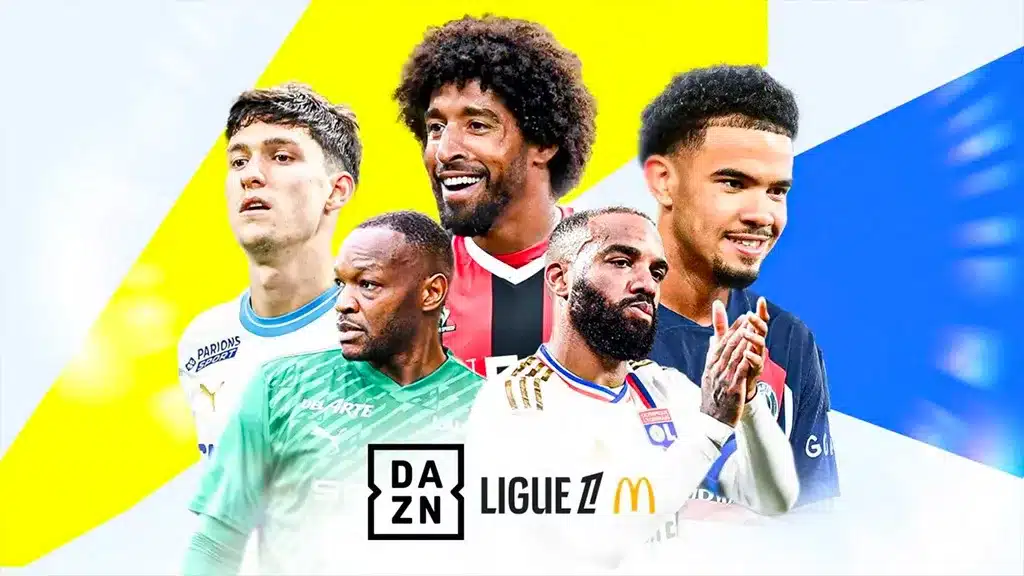
The drama surrounding broadcasting rights in France continues to escalate. This time, it’s DAZN—one of the most ambitious sports streaming platforms—that has walked away from negotiations with the French Professional Football League (LFP). What once looked like a promising partnership has turned into another setback for a league desperately trying to sell its top product: Ligue 1. Here’s an in-depth look at what went wrong, and why both parties—especially the LFP—deserve scrutiny.
DAZN: A Beacon of Hope for a Struggling League
Since launching in 2016, DAZN has positioned itself as a global game-changer in sports streaming. Available in over 200 countries, it holds the rights to some of the world’s top competitions, including Serie A, Bundesliga, La Liga, and the UEFA Champions League in various regions.
France was seen as a strategic market for DAZN’s expansion. And what better way to boost its presence than by acquiring Ligue 1 rights? The company appeared ready to invest—provided there was a clear, stable, and fair valuation of the product.
An Aborted Partnership: What Went Wrong?
Sources say DAZN offered between €375 million and €400 million per season for full domestic broadcasting rights to Ligue 1. In the aftermath of the Mediapro disaster and given the economic climate, this offer seemed both credible and reassuring.
However, the LFP—still clinging to the fantasy of reaching a €1 billion annual target (a delusion born from the failed 2018 Mediapro deal)—deemed DAZN’s offer too low. The league was hoping for significantly more… despite a market that clearly said otherwise.
DAZN, remaining pragmatic, eventually pulled out. From their perspective, the value-for-money just wasn’t there. Ligue 1, weakened by the departure of stars like Messi and Neymar (and soon Mbappé), struggling with empty stadiums and limited global appeal, simply didn’t justify a higher price tag.
The LFP: Clinging to Ambitions, Losing Touch With Reality
This failure is just the latest in a long line of poor decisions by the LFP:
- The Mediapro disaster (2018–2021): a deal worth over €800 million per year, signed without proper financial guarantees, that collapsed mid-season.
- A failed auction for the 2024–2029 cycle, which attracted zero serious bids, forcing the LFP to fall back on private negotiations—an inherently weak position.
- Overdependence on PSG to carry the league’s global image, with no clear strategy to elevate other clubs.
The LFP continues to demand premium prices for a product that is, objectively, in decline. As a result, it now faces the unthinkable: with only months before the new season starts, there is still no confirmed broadcaster for Ligue 1 in France.
What’s at Stake?
By rejecting DAZN’s offer, the LFP is playing a dangerous game:
- Clubs across the country, many already in financial trouble, have no visibility on future income.
- Fans don’t even know where—or how—they’ll be able to watch matches next season.
- Ligue 1’s reputation internationally continues to sink, making future negotiations even harder.
Meanwhile, DAZN walks away without damage. The company has other options, in more stable and lucrative markets. Ligue 1, however, remains trapped in delusions of grandeur—without a solid backup plan.
Conclusion: A Reflection of French Football’s Structural Weaknesses
The breakdown between DAZN and the LFP is more than just a failed negotiation—it’s a clear signal of systemic dysfunction. Ligue 1 is not a bad product. But it is poorly marketed, poorly managed, and stuck in a fantasy of value it hasn’t earned.
If the LFP doesn’t come down to earth, listen to the market, and find a new way to present and promote its championship, it risks pushing clubs into further instability—and alienating fans completely.

Marc Leclerc
Farmers league